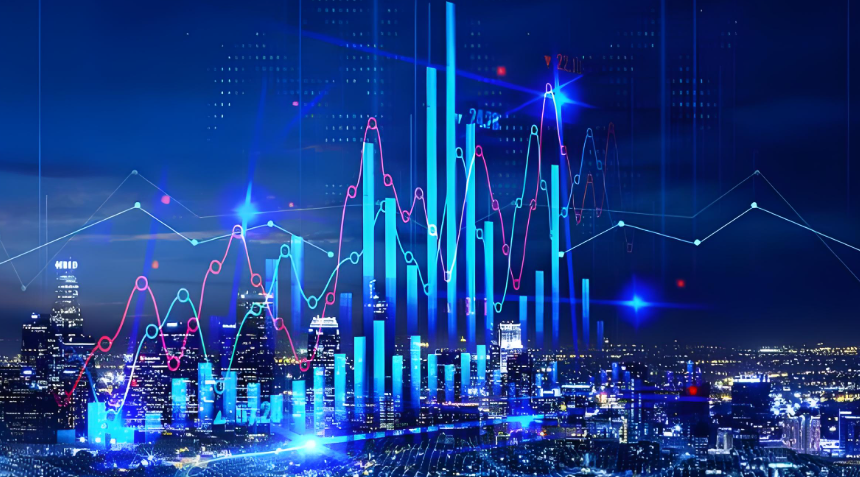The recent public confrontation between Sam Altman, the CEO of OpenAI, and Elon Musk, the CEO of Tesla, has taken the tech industry by storm. Altman's sharp rebuttal of Musk's unsolicited acquisition bid, made on the social media platform X, was a significant highlight during an interview at the Paris AI Summit. The exchange has drawn attention not only because of the personal animosity between the two tech titans but also due to its implications for the future of artificial intelligence development.
During the Paris event, Altman made it clear that OpenAI is “not for sale,” a statement that resonates deeply considering the current climate of innovation and competition in the tech industry. He suspected that Musk's acquisition offer was a strategic maneuver to slow OpenAI's progress. Altman described Musk as one of OpenAI's strongest competitors, indicating that there are substantial philosophical differences regarding the direction each organization views artificial intelligence development. His critical comments pointed towards what he perceives as Musk's unconventional tactics, which have included legal challenges and now, acquisition attempts.
This ongoing rivalry stems from Musk's concerns that OpenAI might be deviating from its original mission as a nonprofit organization. He has launched his AI startup, xAI, in direct competition against OpenAI and has previously filed lawsuits, claiming that OpenAI's pursuit of profit has overshadowed its commitment to humanity's well-being. In response, OpenAI has consistently denied these allegations across various social media platforms, maintaining its integrity and commitment to ethical AI research.
Altman's commentary during the summit further elucidated his perspective on Musk's motivations, suggesting that they are possibly rooted in a profound sense of insecurity. Such a poignant observation provides a glimpse into the competitive psyche within the high-stakes realm of technology. Given that these two leaders have such divergent paths and visions for artificial intelligence, it’s no surprise that personal dynamics become charged.

While Altman has publicly rejected Musk's acquisition proposal, the ultimate decision lies with the OpenAI board, which is responsible for overseeing the organization's nonprofit status. The board’s authority is critical, especially in the context of a potential shift towards a fully profitable model. OpenAI's transition from its nonprofit roots would face substantial regulatory hurdles requiring approval from U.S. lawmakers, underlining the complicated landscape of governance in tech enterprises.
OpenAI's operational structure is notably intricate, indicating an innovative approach to maintaining a balance between profit-making and ethical obligations. Founded in 2015 as a nonprofit aiming to contribute positively to AI development, OpenAI subsequently established a “capped-profit” subsidiary, OpenAI LP, in 2019. This unique setup allows for external investments to fund high-stakes AI research, which has already seen expenditures exceeding $10 billion. However, it is key to note that any profits surpassing predetermined limits revert to OpenAI Nonprofit, reinvesting into its core mission.
The intricacies of OpenAI's governance became even more pronounced following a significant upheaval in its board structure. Following a tumultuous period where Altman faced an unexpected termination, Brett Taylor, the former co-CEO of Salesforce, stepped in as board chair. Taylor's connections to Musk are especially intriguing, as he was previously the chairman of Twitter amidst Musk's controversial acquisition saga of that platform.
As Altman humorously addressed Musk's $97.4 billion acquisition proposal—a staggering number in its own right—he remarked that OpenAI might consider an acquisition of Twitter at a fraction of that price, entrenching the light-hearted yet serious rivalry that plays out in public. His sarcasm does not detract from the very serious implications of the acquisition bids and what they represent for the various stakeholders involved in the technology sphere.
It is vital to recognize that Musk's proposal is backed by xAI, with support from various high-profile investors, including Valor Equity Partners and media executive Ari Emanuel. This backing gives the bid notable weight, intensifying scrutiny on OpenAI's board regarding potential future directions for the organization. However, Altman's assurance that they are considering no option of selling out any AI-associated operations underscores a steadfast commitment to their foundational values.
As the AI domain sees escalating interest worldwide, the events at the Paris AI Summit correspond with broader trends in governmental perspectives towards AI. The announcement from French President Emmanuel Macron regarding a monumental investment of €109 billion into AI infrastructure reflects a commitment at the national level to nurture and expand technological capabilities. However, a global consensus regarding the definition and support structure of “sustainable AI” remains elusive, suggesting that regional differences in approach could increase competitive tensions.
In the context of fluctuating geopolitical dynamics and technological ambition, nations aim to foster AI entities at par with major league players like OpenAI or Nvidia. The competitive landscape is evolving, as leaders across Europe assert their intention to bolster technological infrastructure and explore new regulatory frameworks, positioning themselves for what they perceive as the next technological arms race.
The European Union's upcoming AI strategy, to be unveiled by European Commission President Ursula von der Leyen, aims to provide a unique opportunity to accelerate and simplify AI regulatory processes across member states. By investing in computing capabilities and creating a harmonized marketplace, the ambition resonates throughout the EU, reflecting a collective drive towards innovation and capability in artificial intelligence.
In conclusion, the tussle between Altman and Musk is emblematic of the larger narrative unfolding in the global tech ecosystem, where the intersection of competition, governance, and ethical responsibility is increasingly complex. As leaders like Altman and Musk play pivotal roles in steering the future of AI, how they navigate these challenges will undoubtedly shape not only the trajectory of their organizations but also the broader landscape of technology and society itself.